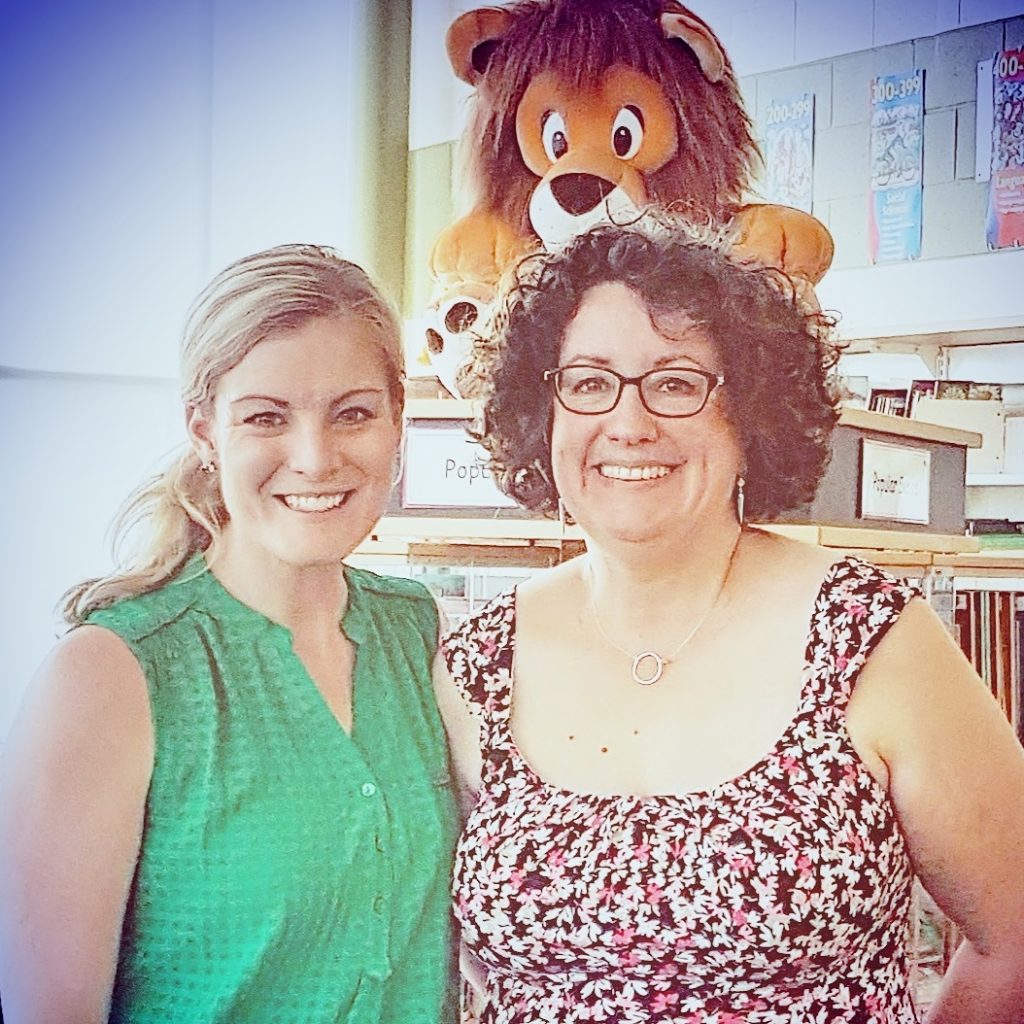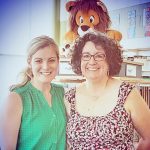To provide an understanding for new and seasoned teachers on how to use formative assessment and immediate feedback to move student learning forward and to build student confidence in mathematics.
Team Members
Deborah Weston
Peel District School Board
Allison Bawab-Crozier
Peel District School Board
Team Photo

Professional Learning Goals
- Deepened our understanding of student mindset and pre-existing ideas in math
- Developed a collaborative and open-ended stance to encourage risk-taking
- Explored multiple pathways and strategies in teaching math
- Challenged assumptions and daily responses on how to give effective feedback to students in math
- Reflected on the impact formative assessment has on student learning and future success
Activities and Resources
Teacher Resource Books
- Hands-On Mathematics by Jennifer Lawson
- Hands-On Problem Solving by Jennifer Lawson
- Making Math Meaningful: To Canadian Students, K-8 by Marian Small
- Les Centres de Mathématiques by Debbie Diller
- Math Work Stations: Independent Learning You Can Count On, K-2 by Debbie Diller
- Les maths par l’image by Marian Small
- Amanda Bean’s Amazing Dream by Cindy Neuschwander
- Embedded Formative Assessment by Dylan Wiliam
- Which One Doesn’t Belong?: A Shapes Book by Christopher Danielson
- The Four Roles of the Numerate Learner by Maria Luisa Lebar and Mary Fiore
Online Math Course (with a focus on “Mathematical Mindset”)
Learning Math For Teachers by Jo Boaler, Stanford University
Math Websites
- YouCubed website by Jo Boaler and Stanford University
- Math Solutions website by Marilyn Burns
- EduGAINS website by Ministry of Education
Math Articles
Ashcraft, M. (2002). Math Anxiety: Personal, Educational and Cognitive Consequences. Current Directions in Psychological Science. 11, 5, 181-185.
Beilock, S. (2011). Choke: What the Secrets of the Brain Reveal about Getting it Right When you have To. Simon & Schuster, Free Press: New York.
Black, P., & Wiliam, D. (1998). Inside the Black Box: Raising Standards through Classroom Assessment. Phi Delta Kappan, October, 139-148.
Boaler, J. (1998). Open and Closed Mathematics: Student Experiences and Understandings. Journal for Research in Mathematics Education, 29(1), 41-62.
Boaler, J. (2002). Experiencing School Mathematics: Traditional and Reform Approaches to Teaching and Their Impact on Student Learning. (Revised and Expanded Edition ed.). Mahwah, NJ: Lawrence Erlbaum Association.
Boaler, J. (2009) What’s Math Got To Do With It? How Parents and Teachers Can Help Children Learn to Love Their Least Favorite Subject. Penguin: New York.
Boaler, J. (2010). The Elephant in the Classroom. Helping Children Learn & Love Maths. Souvenir Press: London.
Boaler, J. (2012, 8-15 July). From Psychological Imprisonment to Intellectual Freedom – The Different Roles that School Mathematics Can Take in Students’ Lives. Paper presented at the 12th International Congress on Mathematical Education, Seoul, Korea.
Boaler, J. (July 3, 2012). Timed tests and the development of math anxiety. Education Week.
Faust, M.W. (1992). Analysis of Physiological Reactivity in Mathematics Anxiety. Unpublished doctoral dissertation. Bowling Green State University, Bowling Green, Ohio.
Lyons, I. and Beilock, S. (2011) Mathematics anxiety: separating the math from the anxiety. Cereb Cortex 22: 2102 – 2110.
Ramirez, G., Gunderson, E. A., Levine, S. C., & Beilock, S. L. (in press). Math anxiety, working Memory and Math Achievement in Early Elementary School. Journal of Cognition and Development.
Wiliam, D. & Leahy, S. (2015). Embedding Formative Assessment: Practical Techniques for K – 12 Classrooms. Learning Sciences International. p. 272
Unexpected Challenges
- Managing time to meet and have discussions to develop project during school year
- Minimal time to share ideas and learning with colleagues during present school year
- Challenges promoting instructional rounds with colleagues to participate in shared lessons and to observe each other’s teaching approaches to formative assessment
Enhancing Student Learning and Development
- Promoting a love for math in student development and understanding
- Teaching students to embrace mistakes and to learn from their mistakes without giving up
- Demonstrating that everyone can learn math
- Practising self evaluation and writing reflections about learning in math by identifying strengths and areas for improvement
- Building confidence through timely feedback and conferencing
Sharing
- Use ideas from TLC project for future journal publication
- Put together a one-page summary of main ideas to promote awareness of the importance of formative assessment
- Possibility of leading a math workshop in the future about our findings
- Apply our ideas to school leadership opportunities
- Continue to collaborate with colleagues and further develop our understanding of formative assessment
- Look for tools and resources to support what we have learned for our classroom and school
- Continue to research and develop our pedagogy and understanding of formative assessment
- Look for an opportunity to create a group for teachers who are interested in collaborating and sharing ideas about formative assessment and timely feedback to help students build their confidence in math
Project Evaluation
Our project has been successful because it has allowed us to become more reflective and aware as educators of our impact on student learning and confidence in math. We have been able to study the way students perceive personal success in math and how it affects their long-term achievement.
This project has provided our team with the resources and time to explore formative assessment collaboratively in and outside of the classroom setting. We have seen how students benefit from timely feedback about their strengths and needs. We have learned that when students are involved in building next steps for their success and are clearly aware of their progress, students perform better and understand that their learning is ongoing, rather than right or wrong.
This opportunity has inspired us to continue to challenge ourselves and to be responsive to the variety of entry points of our students learning about math concepts. Our hope is that with the right guidance and support from teachers, students can use formative feedback to challenge themselves to continue to work through a math problem when working independently.
In conclusion, we believe that with daily, ongoing formative feedback in math throughout a learning continuum, students will develop a mathematical mindset and assurance that they can be successful in math. Furthermore, students will continue to be reflective learners in math into adulthood and will carry with them the knowledge, application of skills, mindset and self-confidence that is critical for solving everyday math problems.
Resources Used
Resources Created
These resources will open in your browser in a new tab, or be downloaded to your computer.



